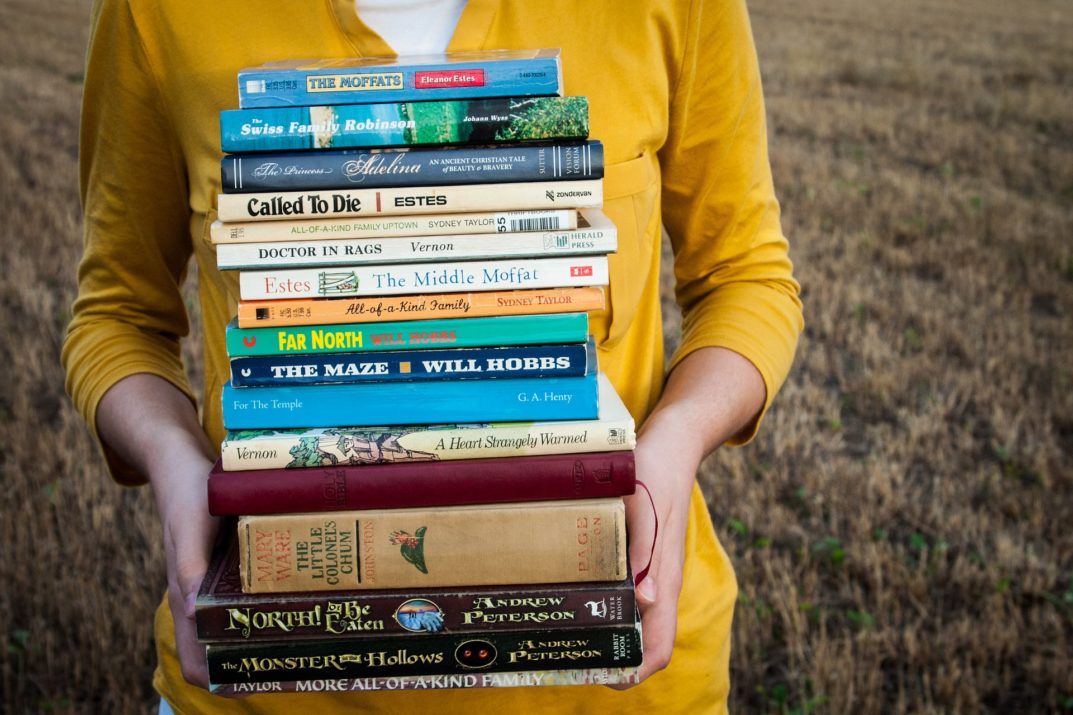
No matter where you work or how long you’ve been in the field, being a teacher is a challenging, yet rewarding profession. And with so many techniques and schools of thought on how you should be teaching or how students learn best, it can be hard to know which tools and resources are right for your classroom.
To make it all a little easier, we’ve rounded up 15 books by teachers that will inspire and motivate you.
Launch: Using Design Thinking to Boost Creativity and Bring out the Maker in Every Student
Technology and innovation director AJ Juliani teamed up with former teacher and education professor John Spencer to write this book on design thinking. The principle behind it is that students are able think creatively when they see themselves as makers, inventors and creators. Juliani and Spencer show teachers why discovery, experimentation and invention are so important and how brainstorming processes build more creative confidence in the classroom, even when a teacher has limited funds to work with.
Teach Like a Pirate
In Teach like a Pirate, teacher and speaker Dave Burgess explains how teachers can take an extraordinarily creative approach to daily classroom learning. Burgess says that true classroom creativity starts with the teacher who stimulates creativity in students by cultivating their own passions. The New York Times bestseller, the book is filled with ideas on how to push the boundaries of creativity while encouraging a sense of belonging among students.
The Classroom Chef
If you teach math, you’ve heard students say “I just don’t get it.” And when a student is truly struggling, it’s hard to know how to counteract this statement. Written by educational technology coaches John Stevens and Matt Vaudrey, The Classroom Chef demonstrates how to break down math learning barriers and get students truly engaged in the subject. Lessons are divided into themes based on a restaurant meal, including appetizers, entrees, side dishes, dessert, and a take out menu, making the concepts easily digestible for teachers.
The Innovator’s Mindset
Teacher, writer, speaker and learning consultant George Couros wrote this guide on innovative learning. In it, Couros explains how teachers can understand innovation in order to unleash talent and leadership in the classroom. One of the strengths of this book is that it presents material in a straight-forward way that’s both compelling and practical. Couros also provides a number of discussion questions and study guides to accompany his thought-provoking book.

The Freedom Writers Diary
Teacher Erin Gruwell tells the story of her own life, as a young teacher in the early nineties. After witnessing instances of racism and inequality in her classroom, she set out to teach her students about tolerance and civil justice. As her students read The Diary of Anne Frank and Zlata’s Diary: A Child’s Life in Sarajevo, she asked them to record their thoughts and feelings in journals. The book goes through this journey and shows how teachers can teach tolerance in their own classroom, which is an especially important skill in today’s political climate.
Pure Genius
Written by Don Wettrick, a former teacher and founder and CEO of entrepreneurship school StartUpEd, Pure Genius advocates teachers and administrators teaming up with students in pursuit of better learning. Wettrick stresses that collaboration is the key to innovation. He also says that when students are empowered to solve problems creatively, they develop free thinking skills that will be invaluable in life.
The Courage to Teach: Exploring the Inner Landscape of a Teacher’s Life
Author and educator Parker Palmer is known for his commitment to the art of teaching. Palmer’s book, The Courage to Teach, outlines how teachers can look deep within themselves to rediscover their integrity and identity. He also shows what it means to look at one’s inner strengths and gifts in order to find a renewed passion and courage for teaching. He examines the intricate connections between public education and the private life of educators to show an empathetic and realistic approach to teaching that lasts.
Ditch That Textbook
Are you ready to toss tired learning techniques and implement strategies your students will love? Then Ditch That Textbook is the book for you. In this guide, high school Spanish teacher Matt Miller shows how teachers can use more modern tools to cultivate students’ passion for learning. He talks about implementing hands-on lessons, leveraging technology and digital mediums, and encouraging innovation in order to create a more engaged classroom. Since today’s students are growing up in a world increasingly dominated by technology, it’s important to teach them using tools they they understand.
Creating Cultures of Thinking: The 8 Forces We Must Master to Truly Transform our Schools
Ron Ritchhart is an education expert and senior research associate at Harvard Project Zero. In this book, he explains why teachers need to emphasize thinking over learning. Ritchart defines eight key cultures that define how we think about learning, including expectations, language, time, modeling, opportunities, routines, interactions and environment. By creating a culture of thinking, both students and teachers bring a common vision, goal and passion to the project at hand. In turn, this helps nurture new generation of thoughtful, independent adults.
The Zen Teacher
Teacher and education speaker Dan Tricarico wrote this essential book on teacher self care. If you’ve ever struggled to slow down and take a break from the chaos, The Zen Teacher will teach you how to finally catch your breath. The book entails specific strategies for managing stress, achieving better focus, and practicing simplicity to improve your overall quality of life. In turn, a more balanced teacher can create a more balanced classroom that helps all students thrive. Think of this book as a teacher’s toolbox for mindfulness.

Helping Children Succeed: What Works and Why
In this prequel to How Children Succeed, education expert Paul Tough tackles a different set of questions. He asks challenging ones, like what it means for a child’s development when they grow up in poverty, and how adversity affects classroom success. He answers them using strategies based on the latest psychology and neuroscience research. You’ll learn which types of environments help students flourish and reach their full potential – and what you can do to foster these spaces.
50 Things You Can Do with Google Classroom
Written by Google certified teacher Alice Keeler and instructional technology coach Libbi Miller, this is an essential text for the modern teacher. As you may have guessed, the book is about the many functions of Google Classroom, including how both teachers and students can leverage Google tools. If you’ve ever felt intimidated by the transition to technology, or you’ve struggled to teach tech to your students, this book makes it easier with step-by-step instruction. If you like this it, the sequel is 50 Things to Go Further with Google Classroom.
Teaching with Your Mouth Shut
In Teaching With Your Mouth Shut, math teacher Donald L. Finkel redefines what it means to be a “good” teacher. Instead of telling students what they need to know, Finkel urges teachers to take a more hands off approach. Specifically, he says that this gives students the freedom to make their own connections, discoveries about the material at hand. As a result, students are more engaged with the learning they’ve achieved, because it feels inherently more personal.
School Culture Rewired: How to Define, Assess, and Transform It
Whether you notice it or not, your school has its own ingrained culture. With that culture comes certain expectations, boundaries and traditions that can either hinder or promote student learning. Education experts Steve Gruenert and Todd Whitaker show teachers how to identify and understand the type of culture that exists in their school. Then, they offer practical advice on how to transform a negative one into a culture that is enriching, positive and forward-thinking.
Master the Media: How Teaching Media Literacy Can Save Our Plugged-in World
Do you sometimes feel overwhelmed by the world’s mass media consumption? Are your students plugged in and tuned out? Media literacy teacher Julie Smith urges educators to look at digital innovation as positive, offering specific tips on how to harness what we watch and listen to in order to enhance learning like never before.


What do you think?